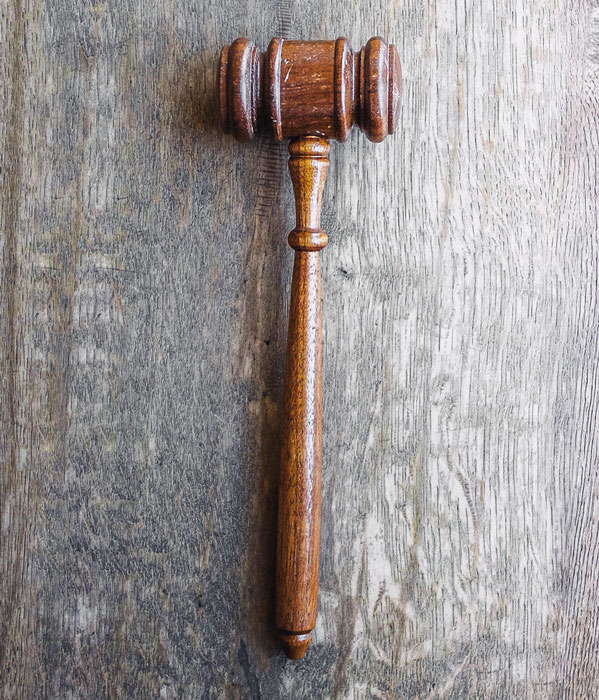County Courts
Scroll down to read more about the positions, qualifications, elections, and who represents you on the various county courts.
IMPORTANT NOTE: These positions are countywide and will be on every Tarrant County resident’s ballot when up for re-election.

What is a County Court?
Since Tarrant County is so large, there are County Criminal Courts, County Courts at Law, County Probate Courts.
“Under its constitutional authorization to “…establish such other courts as it may deem necessary… [and to] conform the jurisdiction of the district and other inferior courts thereto,” the Legislature created the first statutory county court in 1907 to relieve the county judge of some or all of the judicial duties of office. Statutory county courts include:
- County courts at law
- County civil courts at law
- County criminal courts at law
- County criminal courts
- County criminal courts of appeal
The actual jurisdiction of each statutory county court varies considerably according to the statute under which it was created. A few statutory county courts even hear felony cases. In addition, some of these courts have been established to exercise subject-matter jurisdiction in only limited fields, such as civil, criminal, or appellate cases (from justice or municipal courts). ” txcourts.gov
County Courts in Tarrant County
In Tarrant County, there are 48 total County Courts which includes 16 County Courts and 2 Associate County Courts. Each County Court has 1 Judge that is elected by the community. Each Associate DisCounty Court has 1 Associate Judge that is not elected by the community, but chosen by the District Court Judge. Scroll down for more information!
County criminal courts
County Courts at Law
County Probate Courts
associate county probate courts
ALL POSITIONS ARE HELD BY REPUBLICANS.
Judge, County Criminal Court
“County Criminal Courts handle misdemeanor criminal cases. Term is four years.
Misdemeanors are “minor” crimes; examples include shoplifting, traffic tickets, petty theft, perjury, drunken driving, prostitution, and drug possession.” – Tarrant Votes
The Proposed Annual Maximum Salary for County Criminal Court as of Oct 1, 2021, is $193,399.96








Charles "Chuck" Vanover
County Criminal Court No. 8


Judge, County Court at Law
“Since each county is Constitutionally limited to a single county court and judge, the Texas Legislature created statutory county courts at law for the counties with larger populations. Each of the county courts at law was established by an individual statute, and thus vary widely in scope. – Ballotpedia
“County courts at law handle civil matters and hear appeals from justice of the peace courts.
Note: civil law deals with behavior that injures an individual or other private party, such as a corporation. Examples include libel, breach of contract, property damage, and negligence resulting in injury or death.” – Tarrant Votes
The Proposed Annual Maximum Salary for County Court at Law as of Oct 1, 2021, is $193,399.96.
Learn more about County Court at Law
“Because the Constitution limits each county to a single county court, the Legislature has created statutory county courts at law in more populous counties to aid the single county court in its judicial functions.
The legal jurisdiction of the special county-level trial courts varies considerably and is established by the statute which creates the particular court. The jurisdiction of statutorily-created county courts at law may be concurrent with the jurisdiction of the county and district courts in the county.
The civil jurisdiction of most county courts at law varies but is usually more than that of the justice of the peace courts and less than that of the district courts. County courts at law usually have appellate jurisdiction in cases appealed from justice of the peace and municipal courts. ” – txcourts.gov
Judge, County Probate Court
“In the more populated counties, the Legislature has created specialized probate courts to hear probate matters exclusively. Statutory probate courts are located in 10 of the state’s 15 largest metropolitan areas and have original and exclusive jurisdiction over their counties’ probate matters, guardianship cases, and mental health commitments. ” – txcourts.gov
The Proposed Annual Maximum Salary for County Probate Court as of Oct 1, 2021, is $198,475.94
Duties of County Probate Court Judges
“Handles administration of wills and estates, such as distributing assets to beneficiaries and paying debts and taxes; hears lawsuits related to estates and probate matters.
Establishes guardianships for incapacitated persons and minors; handles civil mental health commitments; and hears cases related to family and charitable trusts.
Responsible for maintaining contact with every person under a guardianship each year.” Tarrant Votes
2 Associate Family Judges
Every County Probate Court Judge chooses an Associate Judge! An Associate Judge is NOT elected by the community. It is an appointed position.
So remember – when you vote for a County Probate Court Judge, you are also voting for who they could choose as Associate Judge! They will likely choose someone from the same political party.
What is an Associate Judge?
“The Legislature has authorized the appointment of various judicial officers to assist the judges of the district courts and county-level courts. These judicial officers are usually known as associate judges. They have some, but not all, of the powers of the judges they assist.
Judicial Officers Appointed under Government Code, Chapter 54 and Chapter 54A
Chapter 54A of the Government Code authorizes the appointment of criminal associate judges, civil associate judges, statutory probate court associate judges, and associate judges for juvenile matters to assist district and county-level judges with their caseloads. Chapter 54 also contains provisions for the appointment of masters, magistrates, and hearing officers in certain counties identified by population and the following counties: Bexar, Brazoria, Burnet, Cameron, Comal, Dallas, El Paso, Harris, Lubbock, Tarrant, Travis, and Webb. Cases are not directly filed with judicial officers, but are referred to them by district judges and county-level judges. Rather than rendering final orders, the judicial officers generally make recommendations to the referring court. Generally, judicial officers appointed under Chapter 54 and Chapter 54A of the Government Code are appointed by local judges with the consent of the county commissioners court, and the positions are funded by the county” – txcourts.gov

Chris Ponder
County Probate Court No. 1

Brooke Allen
County Probate Court No. 2
Qualifications
Here are the qualifications for the County Court Judges.
2-year district resident
prior to the general election
6-month resident of Texas
prior to the general election
Registered to Vote
in Area of Office Sought
4 years experience of
Practicing Lawyer or Judge
Connect
Are you looking to get connected in your community? Check out our Connect page to learn more about what organizations/nonprofits are in your community in Tarrant!
Collaborate
Are you an Organizer or looking to become an Organizer in Tarrant County? Check out our Collaborate page to learn how you can join a Collaborate team with other organizers in Tarrant!
